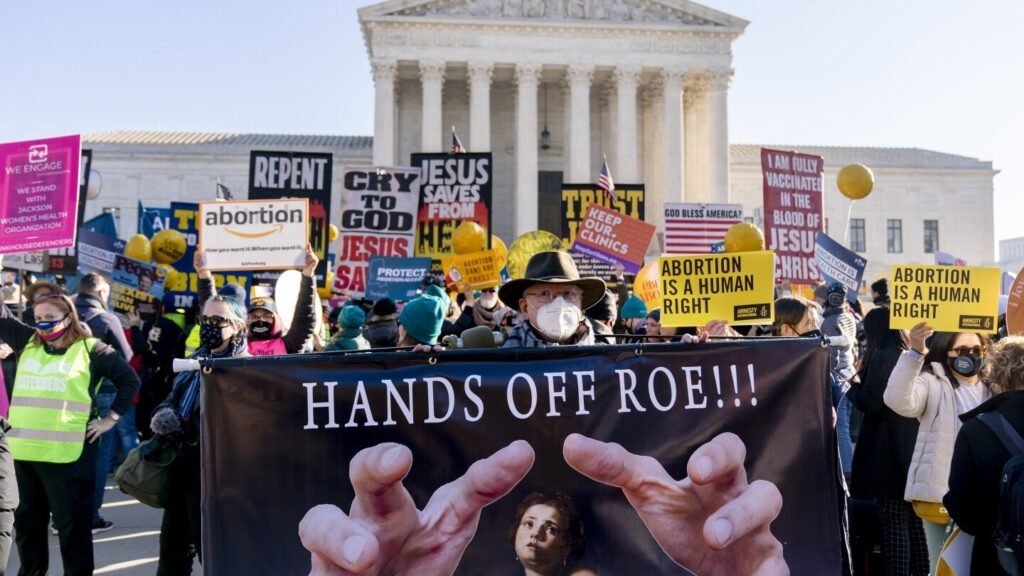Since the U.S. Supreme Court’s Roe v. Wade ruling on Jan. 22, 1973, the time around the anniversary has always been marked by rallies, protests and political pledges.
This time, after the 2022 ruling that overturned the nationwide right to abortion that Roe provided, there’s a flurry of activity as state policy gets decided by courts, lawmakers and voters.
It’s also giving Democrats, including President Joe Biden’s reelection campaign, a chance to rally voters around abortion access.
Abortion opponents also rallied last week in Washington with a context that’s different from past editions of the annual March for Life. There’s no longer a nationwide right to abortion and 14 states have bans on abortion at all stages of pregnancy. But the political fallout has boosted their opponents more than them.
There were still some traditional anti-abortion rallies, including one in St. Paul, Minnesota, where an estimated 2,000 people attended, with many placing life-size models of fetuses on the steps of the state Capitol in protest of policies that protect abortion access.
Here’s what to know about several developments.
At least a hundred people gathered on the steps of the Colorado Capitol on Monday to launch a signature campaign for a ballot measure to enshrine abortion rights in the state’s constitution. A cardboard sign read, “Someone you love has had an abortion,” as state lawmakers and the Colorado attorney general bunched around a microphone and the crowd cheered.
Colorado’s legislature passed abortion protections last year, but “if we don’t enshrine it in the constitution, we will be at the whim of lawmakers,” said Nicole Hensel, executive director of New Era Colorado, one of the coalition of groups behind the Coloradans for Protecting Reproductive Freedom campaign.
Colorado has become an island of abortion protections as surrounding states installed restrictions after Roe was overturned. The Cobalt Abortion Fund based in Colorado spent six times the amount helping people get abortions in 2023 as they did in 2021.
Advocates in Maryland also used Monday’s Roe v. Wade anniversary to begin their campaign to support the ballot measure to enshrine abortion rights in the state constitution that’s already on the ballot there for November.
The only other state where a statewide vote on abortion rights in 2024 is sure to happen is New York, where the proposed amendment includes protecting reproductive freedom.
But similar votes are under consideration in more than a dozen states.
Since 2022, abortion rights supporters have prevailed on all seven statewide ballot measures.
Lawmakers in two states scheduled hearings for Monday as first steps to ask voters to change abortion policy. Both face uphill battles.
In Maine, Democrats are pushing for a measure that would protect reproductive autonomy in the state constitution.
Democrats control both chambers of the Legislature and the governor’s office and, under state law, abortion is allowed at any point throughout pregnancy, if it’s deemed necessary by a doctor.
But advancing a measure to voters would require the approval of two-thirds of both legislative chambers. To reach that, several Republicans would have to vote in favor of asking the public to vote.
In Wisconsin, a GOP proposal would ban abortion after 14 weeks of pregnancy.
Republicans control the legislature there, but Gov. Tony Evers, a Democrat, would likely veto the measure if it passed.
Currently, abortion is available in Wisconsin until fetal viability, but there’s litigation over whether an 1849 law that conservatives interpreted as banning abortion should apply.


